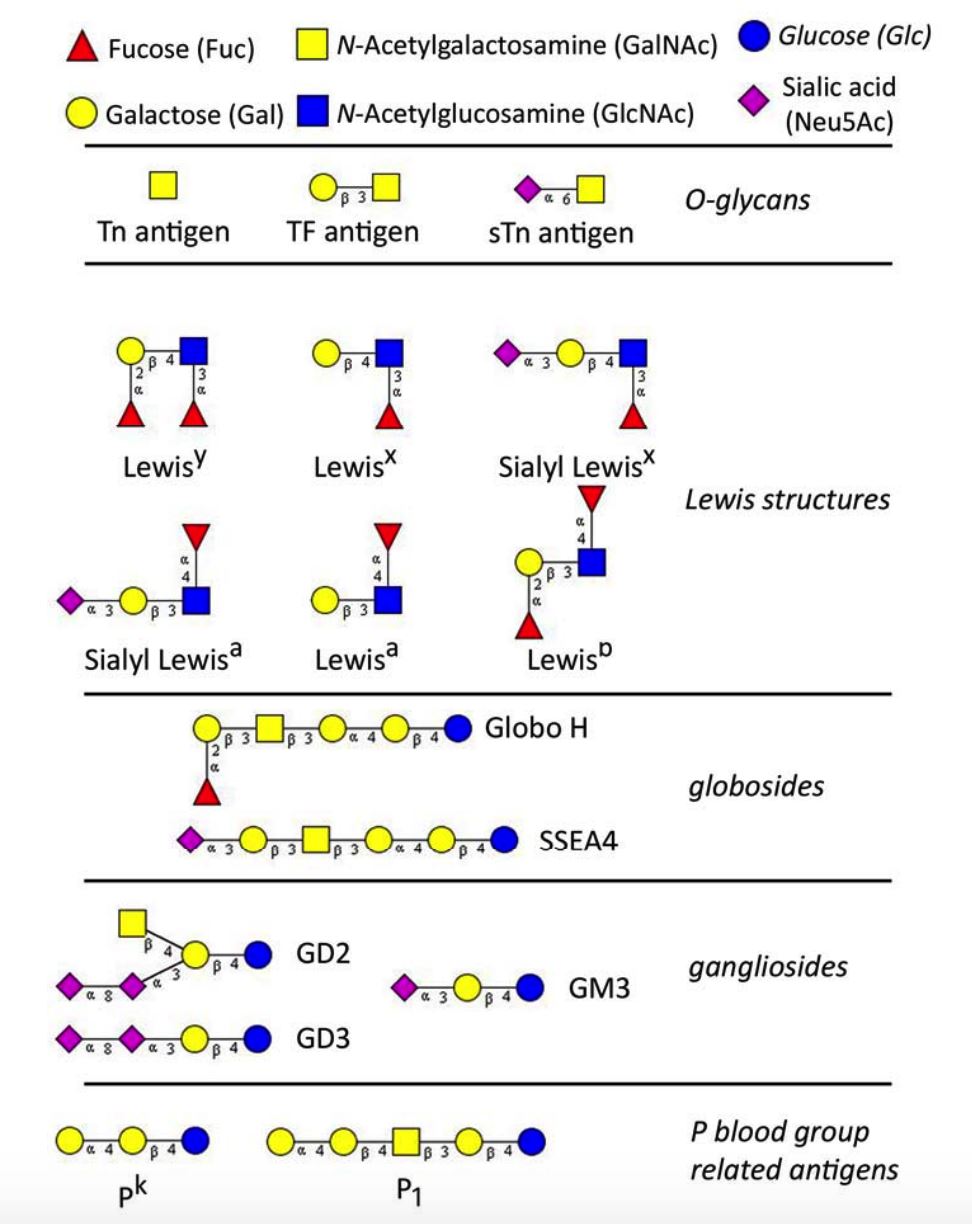Tumor-associated Glycan Detection Services
Creative Biolabs is a leading service provider that focuses on tumor-associated glycan detection. Based on our advanced platforms and extensive experience, now we provide a series of tumor-associated glycan detection services for our clients all over the world.
Introduction of Tumor-associated Glycans
Glycans play important roles in multiple biological processes, especially carcinogenesis. Aberrant glycosylation always occurs during malignant transformation and results in the expression of specific tumor-associated glycans. Expressed by both tumor and host cells, tumor-associated carbohydrates (TAC) are involved in various steps of tumor progression, including tumor growth, cell migration, invasion, metastasis, angiogenesis, and evasion of innate immunity.
What’s more, tumor-associated glycans are mostly located on the surface of cancer cells and therefore have been served as potential diagnostic biomarkers. In summary, the detection of potential glycan biomarkers is of great significance for the early diagnosis and targeted therapy of cancers.
Classification of Tumor-associated Carbohydrates (TAC)
-
Glycosphingolipids of the ganglion- and globo-series
-
Modified Lacto-series type 1 or type 2 chains
-
Core glycan structures of O-linked mucin-type
 Fig 1. The major tumor-associated glycan determinants reported being involved in gynecological cancers.1, 2
Fig 1. The major tumor-associated glycan determinants reported being involved in gynecological cancers.1, 2
Technologies for Tumor-associated Carbohydrates (TAC) Detection
-
Naturally occurring anti-glycan antibodies. With the help of new and sensitive high-throughput platforms, such as glycopeptide arrays, disease-specific anti-glycan antibodies can be detected in the serum at an early stage.
-
High-throughput technologies to map glycan-antibody interactions. Glycan microarrays have been used for the simultaneous detection of glycan-protein interactions.
CA15-3 is the most important specific marker of breast cancer, and its content is significantly increased in 30%-50% of breast cancer patients. The dynamic determination of CA15-3 helps early detection of recurrence in patients with stage II and stage III breast cancer after treatment.
An increased level of CA-125 can be detected in multiple cancer types, including ovarian, endometrial, peritoneal, and fallopian tube cancers. However, due to lack of sensitivity and specificity, it is controversial.
CA19-9, also known as sialic acid-LewisA, is a tetrasaccharide mainly used as a surrogate marker for relapse. In addition, CA19-9 can be used to distinguish cancer from other glandular diseases.
CA72-4 is a reliable tumor marker of disease stage and activity in gastric cancer. Compared with CA19-9, CA72-4 has higher sensitivity and specificity.
Increased plasma PSA concentration is a sensitive monitoring indicator that prompts prostate cancer. Because prostate cancer is not the only cause of increased plasma PSA concentration, it cannot be used as a diagnostic indicator.
Carcinoembryonic antigen (CEA) is a glycoprotein that exists in mucosal cells. The level of CEA in the blood of patients suffering from certain types of cancer will increase, which means that CEA can be used as a detection indicator when people are screened for cancer.
Mucins are a family of high molecular weight proteins and are highly glycosylated. Mucin also participates in the immune response by binding to pathogens. In addition, overexpressed mucin proteins, such as MUC1, are also associated with a variety of cancers.
Creative Biolabs has been a long-term expert in the field of glycomics research. As a pioneer and the undisrupted global leader in tumor-associated glycan detection, we offer a variety of solutions to improve your productivity and streamline your research processes. If you are interested in our products or services, please do not hesitate to contact us for more detailed information.
References
-
Pochechueva, Tatiana, et al. "Tumor-associated glycans and their role in gynecological cancers: accelerating translational research by novel high-throughput approaches." Metabolites 2.4 (2012): 913-939.
-
Under Open Access license CC BY 3.0, without modification.
For Research Use Only.
Related Services

 Fig 1. The major tumor-associated glycan determinants reported being involved in gynecological cancers.1, 2
Fig 1. The major tumor-associated glycan determinants reported being involved in gynecological cancers.1, 2

